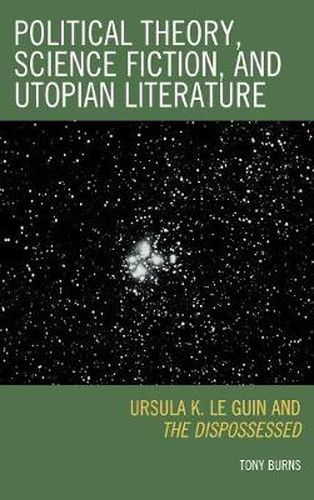Readings Newsletter
Become a Readings Member to make your shopping experience even easier.
Sign in or sign up for free!
You’re not far away from qualifying for FREE standard shipping within Australia
You’ve qualified for FREE standard shipping within Australia
The cart is loading…






Ursula K. Le Guin’s The Dispossessed is of interest to political theorists partly because of its association with anarchism and partly because it is thought to represent a turning point in the history of utopian/dystopian political thought and literature and of science fiction. Published in 1974, it marked a revival of utopianism after decades of dystopian writing. According to this widely accepted view The Dispossessed represents a new kind of literary utopia, which Tom Moylan calls a critical utopia.
The present work challenges this reading of The Dispossessed and its place in the histories of utopian/dystopian literature and science fiction. It explores the difference between traditional literary utopia and novels and suggests that The Dispossessed is not a literary utopia but a novel about utopianism in politics. Le Guin’s concerns have more to do with those of the novelists of the 19th century writing in the tradition of European Realism than they do with the science fiction or utopian literature. It also claims that her theory of the novel has an affinity with the ancient Greek tragedy. This implies that there is a conservatism in Le Guin’s work as a creative writer, or as a novelist, which fits uneasily with her personal commitment to anarchism.
$9.00 standard shipping within Australia
FREE standard shipping within Australia for orders over $100.00
Express & International shipping calculated at checkout
Ursula K. Le Guin’s The Dispossessed is of interest to political theorists partly because of its association with anarchism and partly because it is thought to represent a turning point in the history of utopian/dystopian political thought and literature and of science fiction. Published in 1974, it marked a revival of utopianism after decades of dystopian writing. According to this widely accepted view The Dispossessed represents a new kind of literary utopia, which Tom Moylan calls a critical utopia.
The present work challenges this reading of The Dispossessed and its place in the histories of utopian/dystopian literature and science fiction. It explores the difference between traditional literary utopia and novels and suggests that The Dispossessed is not a literary utopia but a novel about utopianism in politics. Le Guin’s concerns have more to do with those of the novelists of the 19th century writing in the tradition of European Realism than they do with the science fiction or utopian literature. It also claims that her theory of the novel has an affinity with the ancient Greek tragedy. This implies that there is a conservatism in Le Guin’s work as a creative writer, or as a novelist, which fits uneasily with her personal commitment to anarchism.